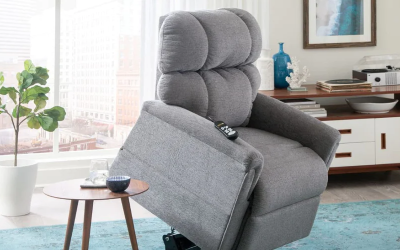Across the United States, the focus on infection prevention and patient safety remains a top priority within healthcare facilities. As hospitals strive to meet stringent health standards, they invest heavily in advanced cleaning solutions designed specifically for medical environments. For those seeking reliable solutions, clinical cleaning products have become a vital component in maintaining the highest standards of cleanliness and safety throughout the healthcare sector.
The Role of Professional Cleaning in Healthcare Settings
Healthcare environments present unique challenges in maintaining cleanliness. Unlike typical commercial spaces, hospitals and clinics face the constant risk of exposure to pathogens, bacteria, and viruses. High-touch surfaces, patient rooms, operating theaters, and waiting areas must be sanitized thoroughly and regularly to minimize the risk of healthcare-associated infections (HAIs).
Clinical Cleaning Products are formulated to address these specialized needs. Their effectiveness in eliminating a wide range of pathogens helps mitigate the spread of infectious diseases among patients, staff, and visitors. These products are developed to meet rigorous regulatory standards, ensuring that they are both safe for use in sensitive medical environments and effective against even the most resilient microorganisms.
Key Features and Benefits of Advanced Cleaning Solutions
Modern clinical cleaning solutions are designed with both efficacy and safety in mind. They work to reduce the presence of harmful microorganisms without posing risks to patients or healthcare staff. Some of the most significant benefits of using these products in hospitals include:
- Broad-spectrum antimicrobial action: These solutions are capable of killing bacteria, viruses, and fungi commonly found in healthcare settings.
- Fast-acting formulas: Many clinical cleaning agents work quickly, enabling rapid room turnover and minimizing downtime between patient admissions.
- Compatibility with sensitive equipment: Products are formulated to be safe for use on a variety of surfaces, including medical devices and electronics.
- Reduced risk of chemical exposure: Formulations are tested to minimize harmful residues, ensuring they are safe for use around vulnerable patient populations.
By integrating these advanced features, hospitals can maintain a cleaner environment and minimize the risk of cross-contamination, which is crucial for patient safety.
Supporting Patient Safety and Infection Control Initiatives
The adoption of clinical cleaning products aligns with broader infection control strategies implemented by hospitals across the nation. These strategies often include comprehensive cleaning protocols, staff training programs, and regular monitoring of hygiene standards to ensure optimal cleanliness. By utilizing high-quality cleaning agents, healthcare facilities reinforce their commitment to protecting both patients and medical personnel.
Furthermore, the use of specialized cleaning products supports compliance with national and state regulations governing hospital sanitation. Regular audits and inspections require documentation of cleaning practices and verification that approved cleaning agents are in use. This transparency builds trust with patients and their families, demonstrating that every precaution is being taken to maintain a safe and sanitary healthcare environment.
Infection prevention and patient safety remain at the forefront of healthcare concerns in the United States. By embracing the latest advancements in cleaning technology, hospitals ensure that their facilities meet—and exceed—the most demanding standards for cleanliness. Clinical cleaning products play a crucial role in this ongoing effort, providing the efficacy and reliability necessary to protect the health and well-being of all who enter a medical facility. With their proven track record, these solutions remain a cornerstone of effective infection control and patient care nationwide. To know more, visit Clinical Supply Company.


